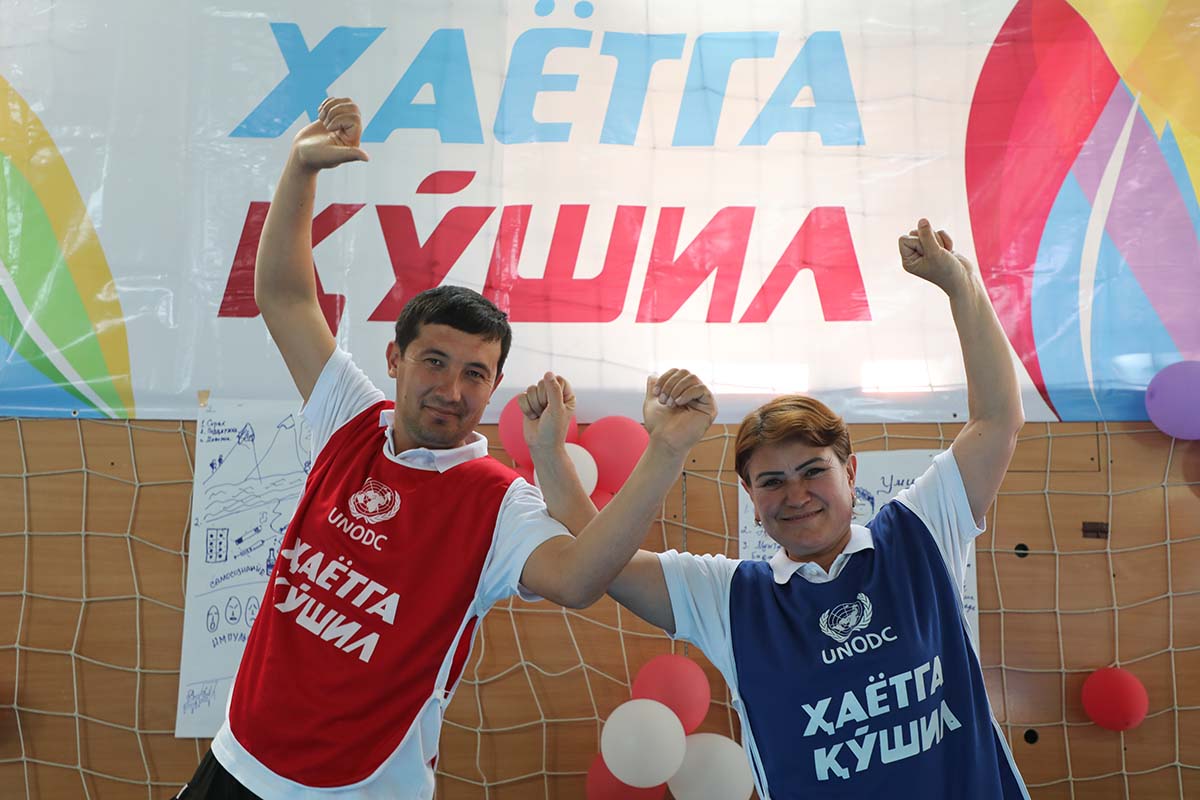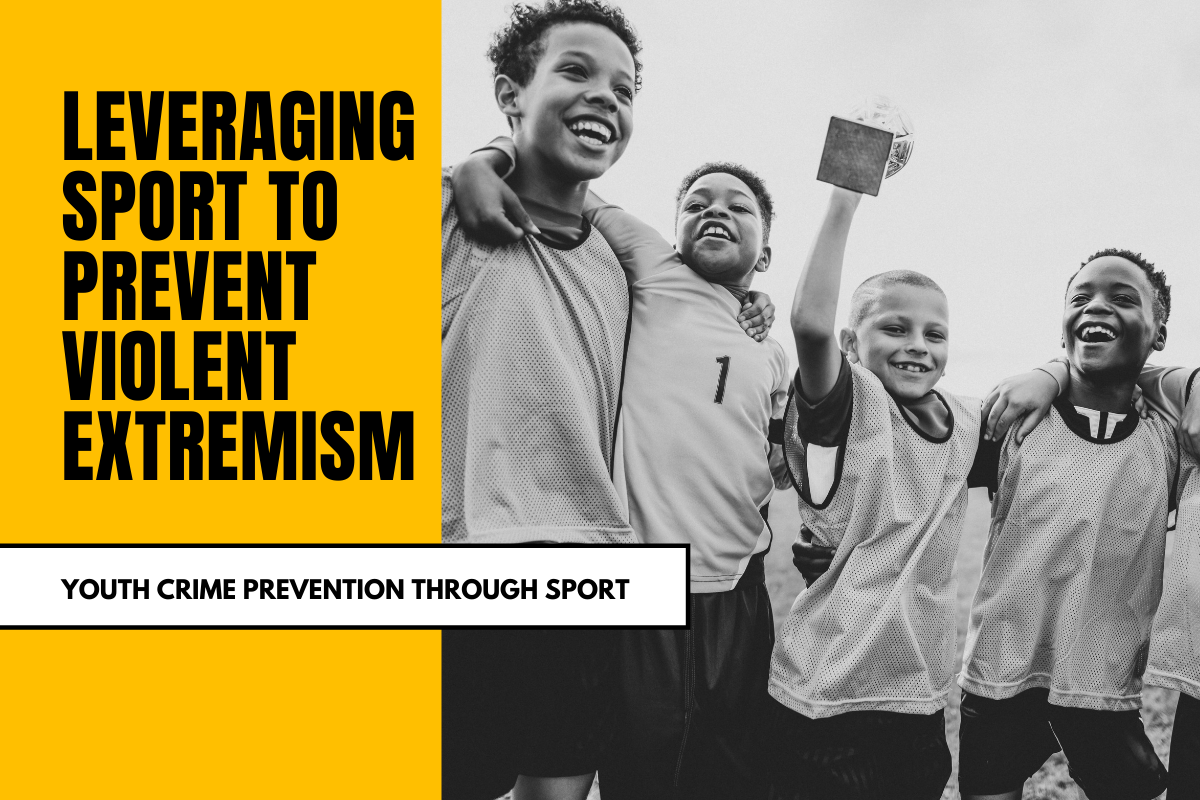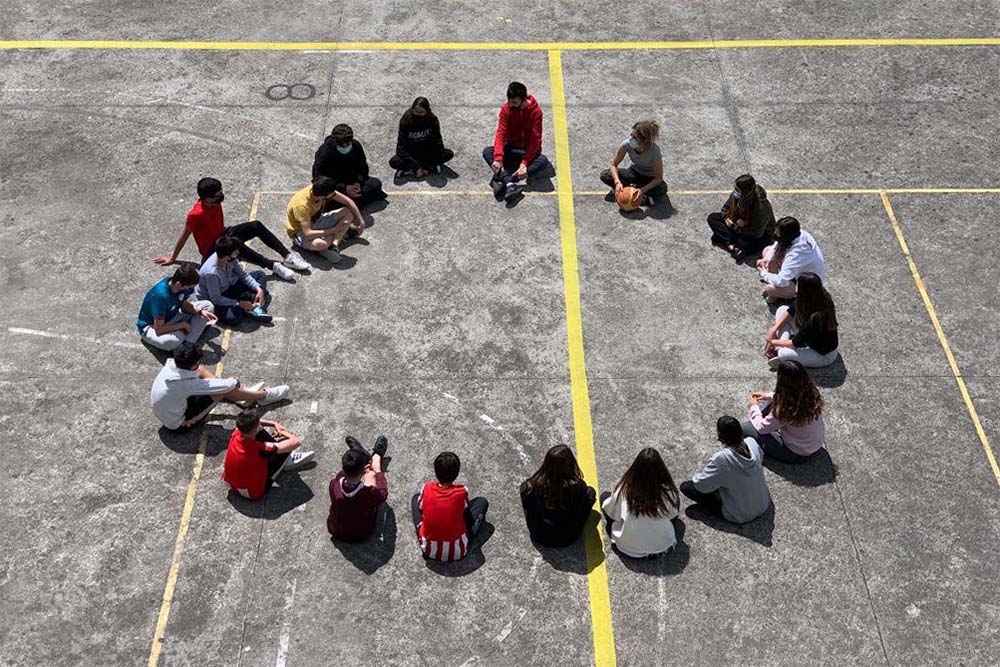The challenges of protecting youth from crime and violence in a pandemic
3 November 2020 – Young people are particularly vulnerable to the disruptions the COVID-19 pandemic has caused, with many at risk of being left behind in education, economic opportunities, and health and wellbeing during a crucial stage of their life development. Over one billion children and youth, or 60 per cent of all enrolled learners, are affected by school closures, and poverty and unemployment rates due to COVID-19 have increased dramatically.
Many of these hardships are also known risk factors associated with crime, violence, and drug use, and may expose youth to increased victimization and involvement with crime during and after the pandemic. Such risks, accentuated by confinement and restriction measures, include limited access to education and employment, inequality, stress within families/households, poor mental health and well-being, and loss of social and community networks.
The children and youth currently under some form of confinement are at higher risk of exploitation, violence and abuse, including domestic violence, cyberbullying, and recruitment by terrorist and other criminal networks. These potential victims are less likely to seek help and contact support services, with lockdown measures further limiting access to positive coping mechanisms such as community service, formal or non-formal education, sports and other types of physical activity. In this situation, young people may turn to negative coping mechanisms such as alcohol, drug use, and self-harm.
While some parts of the world have witnessed decreases in homicides and other types of crime during COVID-19, organized crime and youth gangs have continued to operate violently in some regions; there have even been reports of criminal groups enforcing health measures and offering services to citizens, in an attempt to generate more support in local communities. These prolonged socio-economic and mental health challenges could result in increased youth crime, violence, and victimization further down the line.
This unprecedented crisis calls for strong, timely and comprehensive responses to ensure the physical and mental well-being of young people. To contribute to this effort, UNODC’s Youth Crime Prevention (YCP) initiative, part of the Global Programme for the Implementation of the Doha Declaration, launched the YCP/COVID online workshop series with policymakers, youth representatives, civil society and academia. Since July, 15 events were held at country and regional level across Latin America and the Caribbean, the MENA region, Central Asia, and Eastern and Southern Africa.
 The workshops explored how sport-based programmes and support services have adapted during the pandemic, shared country experiences on providing support to youth and their families during the COVID-19 outbreak, and considered effective and innovative responses to address increased vulnerabilities, especially those related to violence, crime, and substance use.
The workshops explored how sport-based programmes and support services have adapted during the pandemic, shared country experiences on providing support to youth and their families during the COVID-19 outbreak, and considered effective and innovative responses to address increased vulnerabilities, especially those related to violence, crime, and substance use.
While the realities of young people differ by country and community, some of the key impacts of the pandemic highlighted during the discussions are very similar, namely a sharp increase in school drop-out rates, increased anxiety and mental health disorders, and reduced opportunities for socialization and recreation. “We can’t give up, we need to think of all forms of prevention, focused on social development, so that organized crime structures stop recruiting young people,” highlighted Malory Briceno, from the Colombian Institute of Family Welfare, during one of the events. In Eastern Africa, participants and experts reported with concern anecdotal data showing a rapid increase of girls’ pregnancy rates in several countries in the region – one of the risk factors related to school dropout, substance use, crime and victimization of girls.
To mitigate these threats, experts stressed the need to prioritize the continuity of services for youth, parents and families, including through community-based programmes. The Dominican Republic, for instance, set up virtual sessions to support parents and caregivers during the pandemic, with new hotlines to address COVID-19-related problems. The importance of parental care and family skills programmes in supporting young people, preventing violence, and promoting family well-being during this particular period was also emphasized by participants in Central Asia.
A common challenge was the need to secure public spaces and create recreation opportunities for young people, including sports, arts and culture. “Initiatives which generate spaces for peer interaction, such as Line Up Live Up, are key to prevent violence, especially while COVID-19 limits opportunities for socialization,” noted Cecilia Caparachín, a researcher from Peru. Innovative responses while respecting pandemic restrictions included the use of sport and art to provide a venue for young people to stay active, express themselves, and create peer support networks, both online and in small face-to-face gatherings. The motto of “learning is most effective through play” was also prominent among the discussions.
 E-sport and eLearning sessions, online sport challenges and the extensive use of social media for information sharing and group communication are a common practice. Sport programmes are being adapted to respond to broader community and humanitarian needs, including on public health and social support, addressing specific vulnerabilities and forms of violence that have increased during the pandemic, such as domestic violence and mental health issues. For example, in South Africa, several sport-based initiatives have continued engaging youth during COVID-19 through online sports activities, broadening their scope to include services such as providing meals and remote psychosocial support to address increased vulnerabilities. The importance of adjusting donor expectations to the current implementation possibilities, and of continuing to fund sport-based initiatives at the community level was also highlighted.
E-sport and eLearning sessions, online sport challenges and the extensive use of social media for information sharing and group communication are a common practice. Sport programmes are being adapted to respond to broader community and humanitarian needs, including on public health and social support, addressing specific vulnerabilities and forms of violence that have increased during the pandemic, such as domestic violence and mental health issues. For example, in South Africa, several sport-based initiatives have continued engaging youth during COVID-19 through online sports activities, broadening their scope to include services such as providing meals and remote psychosocial support to address increased vulnerabilities. The importance of adjusting donor expectations to the current implementation possibilities, and of continuing to fund sport-based initiatives at the community level was also highlighted.
Facilitating this adjustment was crucial for Marco Teixeira, Global Coordinator of the Doha Declaration Global Programme: “In view of the pandemic that has turned our lives upside down, we adapted our activities to continue providing support to young people and Governments around the world. We have turned to online solutions and continue implementing Line Up Live Up in person where possible and respecting COVID-19 measures. In our response, sport is one piece of the puzzle – it provides an entry point to reduce violence, and to be impactful and sustainable sport must be embedded in broader youth development and crime prevention strategies.”
In these circumstances, providing internet access for all has become a top priority to avoid the risk of amplifying inequalities. Several countries, including Colombia and Uganda, have looked to other types of technology, such as television and offline applications, to reach out to vulnerable youth and deliver education and recreation services.
 In the State of Palestine, Abdelhakeem Abu Jamous, from the Ministry of Education, emphasized building positive values as a key to preventing crime, violence and drug use among youth, and to garner their potential as agents of change. Numerous examples were given on how many young people across the globe are responding to the crisis through public health promotion, volunteering and innovation, highlighting their active participation in decision-making as key to an inclusive recovery.
In the State of Palestine, Abdelhakeem Abu Jamous, from the Ministry of Education, emphasized building positive values as a key to preventing crime, violence and drug use among youth, and to garner their potential as agents of change. Numerous examples were given on how many young people across the globe are responding to the crisis through public health promotion, volunteering and innovation, highlighting their active participation in decision-making as key to an inclusive recovery.
Several speakers also acknowledged that the realities of young people vary dramatically and what works for some does not work for all; age, gender, place of residence and socioeconomic status are all key factors explaining the differential impact of the pandemic on young people and youth violence. “Prevention of youth crime and violence in the context of COVID-19 requires synergetic efforts, good governance, ownership, ethical values, comprehensive and partnership approaches; it requires continuous youth engagement in crime prevention, security and socio-economic development aspects,” noted CP Bruce Munyambo, from the Rwanda National Police.
The harmful effects of this pandemic are most damaging for those in already disadvantaged or vulnerable situations, as they risk a further increase in inequalities, discrimination and marginalization. To avoid this downward spiral, it is essential to continue investing in prevention efforts, ensure continuity of support services and opportunities for positive youth development during and after the pandemic. Moving away from homogeneous and adult-centred responses, adapting strategies to ensure all young people will have access to education, life skills development, employment and recreation/sports opportunities, and strengthening parenting skills will be necessary conditions for the well-being of youth today and tomorrow.
Additional information:
UNODC Youth Crime Prevention through Sport initiative
COVID-19 Educational Disruption and Response (UNESCO)
UN Policy Brief: The Impact of COVID-19 on children (April 2020)
How COVID-19 is changing the world: a statistical perspective (UNODC)
Policy Brief #67: Protecting and mobilizing youth in COVID-19 responses (UNDESA)
UNODC online workshop series on Youth Crime Prevention in the Context of COVID-19
COVID-19, Working for and with young people (Compact for Young People in Humanitarian Action)


